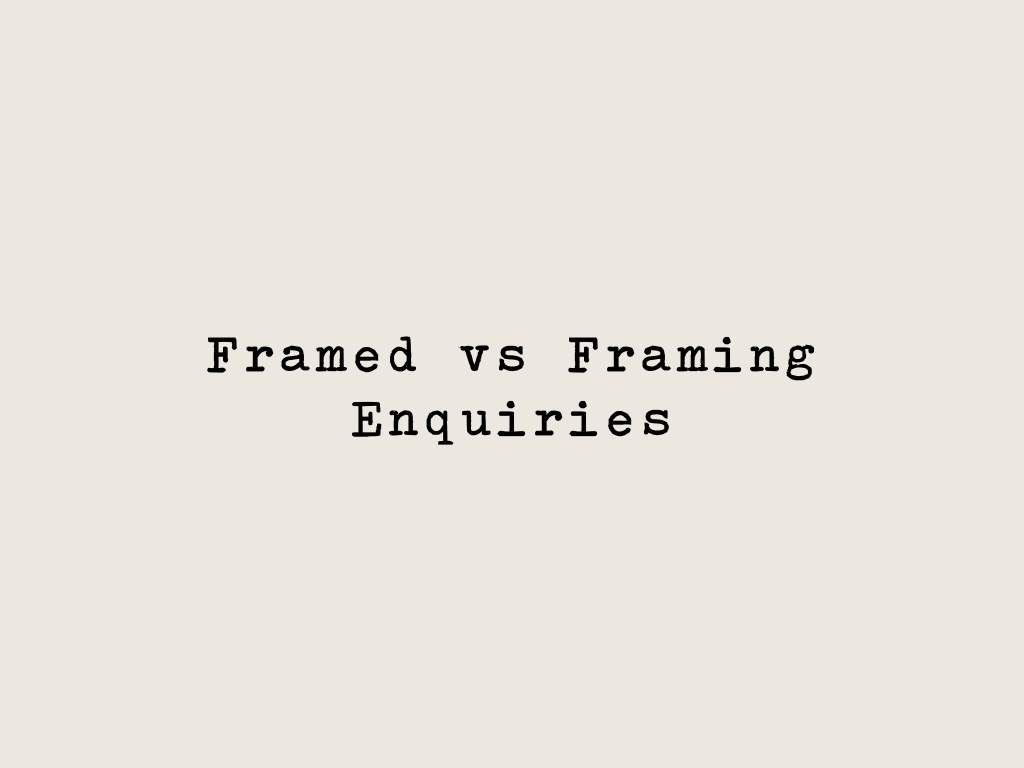Through Céline Henne, I was introduced to the idea of framed vs framing enquiries, a tremendously useful tool to consider what types of questions you really are trying — or ought to try — to ask. The short version is this: Frameworks are “constellations of concepts, methods and assumptions that reflect our understanding of the workd around us and regulate how we think and act.”
Hence, a framed enquiry is one where we already know exactly what we’re looking for, we just need to reveal the facts. It’s a much more limited scope, there is a clear, factual answer. Examples she provides are questions like “what was the average surface temperature on earth a million years ago” (hard to figure out, but clearly, a factual answer exists) or having a map that has a blank spot that needs filling in.
A framing enquire is much more open-ended and usually doesn’t have a factual answer. This is rather about how we should think about a certain issue. These types of enquiries are “are concerned with the creation, revision or expansion of our frameworks”. As an example, she offers the paradigm shift from Newtonian physics of absolute space and time of Einstein’s relativistic paradigm of physics. Or how different interpretations (frameworks) of looking at what constitutes good governance might focus on either economic productivity or on health outcomes or quality of life, for example.
In strategy work, both are important: Do we need to reveal facts to make better decisions or should we reconsider how we think about the issue? Most importantly, you need to find out what type of question it is you should be asking in the first place.


